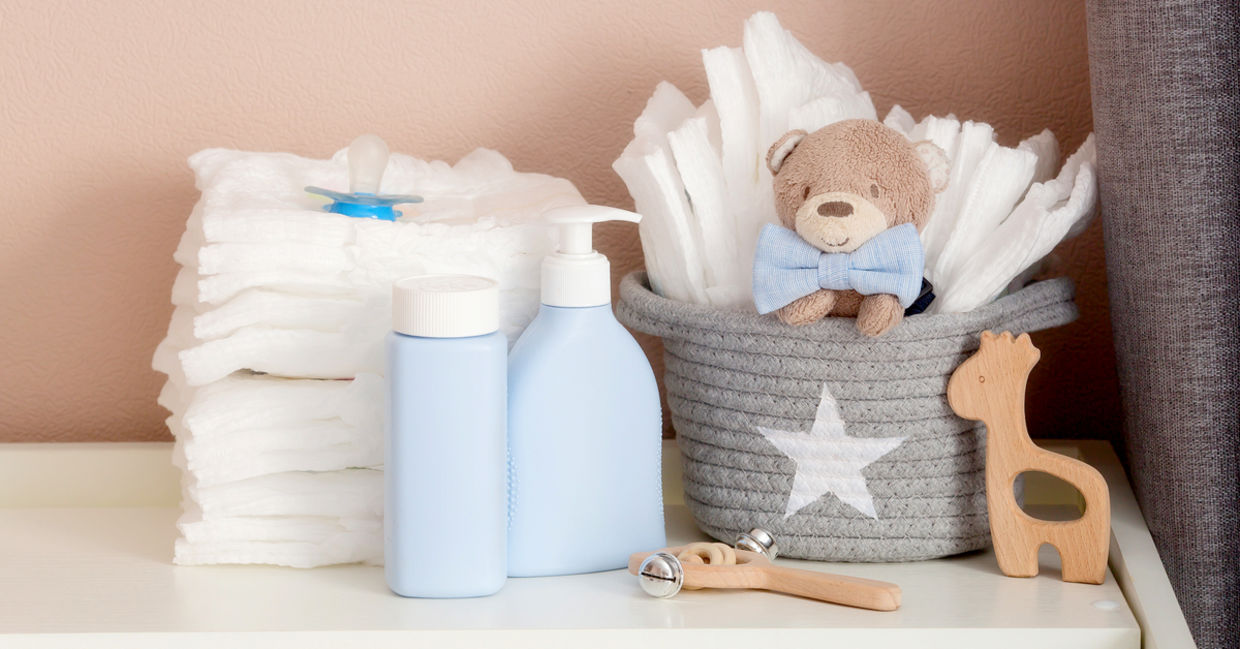
(PhotoJuli86 / Shutterstock.com)
One of the most surprising thingsnew parents遭遇是他们一天经过的尿布。平均而言,它约为10-14个尿布父母每天都会改变他们的新生儿。这是许多尿布,为什么威尔士政府赞同一家威尔士公司正在努力将尿布回收尿布(英国术语)进入需要和可持续的道路。Washington Post.
Over eight billion disposable diapers end up in landfills every year
Researchshows that diapers take 500 years to decompose and even the biodegradable ones don’t decompose right away. In the United States, about 50 million diapers are dumped into landfills each year. And in Britain, nappies account for two to three percent of all household waste, according to the Post.
Cloth diapers as an alternative might not be much better for the environment, as washing and producing them consumes a lot of energy and water. The country of Wales in the United Kingdom has aNappy recyclinglocal authority as part of an effort to become azero-wastenation by 2050, and it is using disposed nappies to resurface its roads in a new pilot project.
Diapers recycled to resurface roads in Wales
The United Kingdom’s only operational recycling plant,NappiCyclein South Wales, is the one to thank for these new Welsh roads. In 2009 the founder of NappiCycle, Rob Poyer, developed a process to clean used nappies and separate their plastic and cellulose fibers to be reused. The plant recycles 100% of the nappies it gets, according to theirwebsite, so that nothing is sent to landfills.
The Welsh company supplied the pellets made from recycled fibers to resurface part of the country’s A487 roadway, between Cardigan and Aberystwyth. Completed in February, the 1.4-mile (2.6 km) stretch was made from over 100,000 recycled nappies, according toCircularUK news, UK’s largest resource for waste management. The diapers were rinsed and shredded into fibrous gray pellets and mixed with asphalt, a sticky black liquid-binding material, to create the new road. Asphalt and plastic are themselvesgreener solutions, as they are made of hydrocarbons with a lower carbon footprint, according to Circular UK.
Collecting nappiesand preventing them from filling up landfills is a challenge. Some areas in Wales encourage disposable diaper users to toss diapers into separate bins but this is not mandated everywhere. So, NappiCycle partnered withPura, an eco-friendly baby care company, to make nappy recycling easy for UK parents, and have worked together to prevent 800,000 nappies from ending up in landfills, according to Circular UK.
According to the local Nappy Recycling Authority, Economy Minister for Wales, Vaughan Gething, explains that“The Welsh Government is committed to supporting our businesses to design and develop innovative solutions to global problems, which helps boost our economy and protect our society.” Speaking of this new NappiCycle project specifically, he shares that “Once again, Wales is demonstrating it is a leading player in applying R&D toCircular Economy solutions.”
Nappy road is like any other road – but greener
Neighbors of nappy road and those who drove on it were surprised to hear they weredriving on recycled尿布,正如道路就像任何其他道路一样。山姆瓦沃克斯是一家在路附近运行汽车维修店的本地沃克斯告诉华盛顿邮报,“除了从回收的尿布中绕过的谣言外,路上的谣言......你不会知道任何区别。”
Overall, using diapers in building roads is better for the environment and a great initiative towards zero-waste. Wales’ nappy road is only the beginning ofbuilding more roads with a lower environmental impact. Ben Lake, a politician who represents this region in Britain’s Parliament, stated that the nappy road “could be a game-changer for how we approach infrastructure in Wales,” according to the Washington Post.
YOU MIGHT ALSO LIKE:
This Shoe Grows Into a Tree!
This Inspirational Indian Team Speed-Builds Playgrounds From Trash!
Meet an Architect With Cool Designs on Trash







